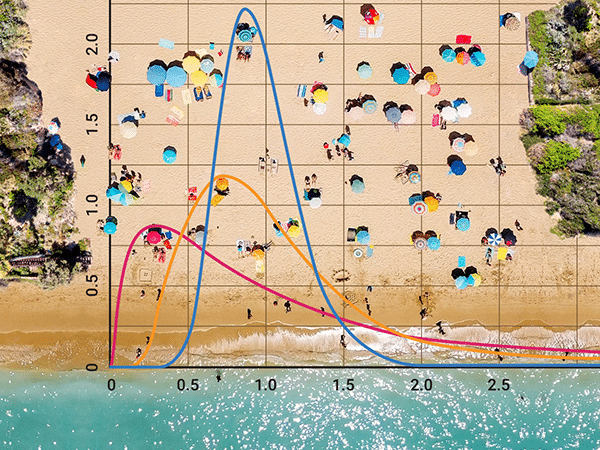
If you want to take your understanding of probabilities to the next level, it’s crucial to be familiar with the concept of a probability distribution.
In short, a probability distribution is an assignment of probabilities or probability densities to all possible outcomes of a random variable.
For example, take the random process of flipping a regular coin. The outcome of each flip is a random variable with a probability distribution:
- P(“Heads”) = 0.5
- P(“Tails”) = 0.5
Depending on the type of random variable you’re working with, there are two general types of probability distributions: discrete and continuous. In this post, I’m going to give an overview of both kinds. And in follow-up posts I’m going to individually introduce specific frequently used probability distributions from each kind.
[Read more…] Throughout history, we have come up with better and more accurate ways to measure physical quantities like time, length, mass, and temperature. This has been crucial for our scientific and technological development.
Throughout history, we have come up with better and more accurate ways to measure physical quantities like time, length, mass, and temperature. This has been crucial for our scientific and technological development. The concept of a sample space is fundamental to probability theory. It is the set of all possibilities (or possible outcomes) of some uncertain process.
The concept of a sample space is fundamental to probability theory. It is the set of all possibilities (or possible outcomes) of some uncertain process.